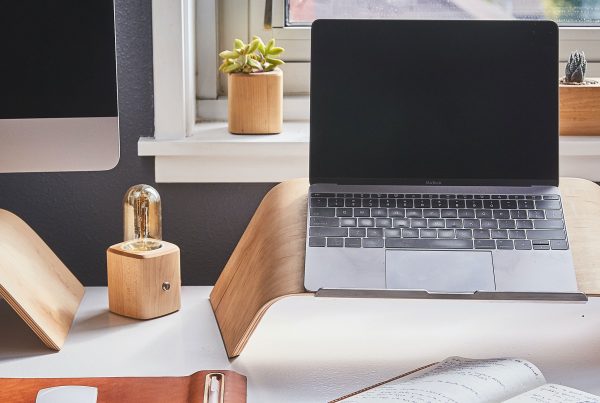Digital nomads need something that can be done from anywhere in the world and doesn’t require a lot of start-up costs. They also need to do something that keeps them in touch with people and allows them to make new connections. Podcasting fits the bill and is a really fun way to become an online influencer. For the second article in our Digital Nomad series, we will give you all the information you need to get started podcasting, from equipment to choosing a topic to recording and editing your episodes.
Do you need a refresher on what it means to be a digital nomad? A digital nomad is someone who uses technology to make a living, often while traveling or living in different places. They are usually self-employed or work for companies that allow them to work remotely.
Why Start a Podcast?
Starting a podcast is an excellent way to gain recognition and build a personal brand. It’s a great way to demonstrate your expertise, showcase your personality, and engage with a larger audience. Podcasts are also an excellent form of passive revenue. According to WiredClip, “Typically, a podcaster with around 10,000 downloads per episode can expect to earn somewhere between $500 to $900. Very successful podcasts can earn much more.”
Podcasts are also a great way to build relationships with people in other fields. You can connect with other leaders in your industry, build your network, and maximize your potential. They are an effective way to start conversations with your audience and engage them in exciting topics. You can also use podcasts as a platform to showcase your skills and gain visibility in your chosen industry.
What Podcasting Equipment Do You Need?
Having the right podcasting equipment can make the difference between a professional podcast and an amateur one. While you don’t need the latest and greatest equipment (or the most expensive), having the right tools will help ensure your podcasts sound professional. Here is what you will need to get started:
At a minimum, you’ll need a microphone and a recording device like a laptop, phone, or tablet. Then, once you get your podcast going and you are loving it, you can invest in a quality standalone microphone.
Audio editing software will also be necessary. You can use basic and free software like Audacity. To record remotely, you’ll need a streaming platform. And there are many podcasting platforms that also offer audio editing. Here are some of the most popular free streaming platforms:
- Podbean – This platform is a simple and effective tool for creating, promoting, and monetizing your podcast. It offers everything you need to start and run a successful podcast.
- Buzzsprout – Podcast hosting is easy with Buzzsprout. They provide simple and practical tools, as well as free instructional resources and exceptional customer service.
- Speaker – This all-in-one audio creator’s tool lets you create and distribute your podcasts and offers many monetization options.
Shortly after getting your podcast established, you’ll also need some accessories. Investing in a good microphone stand, good headphones, and a good pop filter will go a long way in helping you achieve a professional sound. In addition, invest in a mixer, either analog or digital, to further optimize the sound quality.
Choosing the Topic for Your Podcast
One of the most important things about a podcast is the topic. This can be anything that you’re passionate about or that you think would be interesting to your audience. Choose a topic that you can talk about for a long time without getting bored. Here are a few tips to help you choose a subject for your first podcast:
- Pick a topic that you’re passionate about. This will make it easier for you to keep coming up with new episodes. You are going to need a lot of material for regular podcasting, so choose something you love and know a lot about.
- Do your homework. See what’s currently trending and what isn’t. Do a bit of market research to see what there is a desire for. Look for the right “niche” and stick to it.
- Avoid controversial topics. You don’t want to alienate potential listeners with controversial subject matter. After you get some experience and a larger audience, a little controversy may not be a bad thing, but in the beginning, it will limit how many people tune in.
How to Record and Edit Your Podcast
It is easy to record a podcast, but it takes a bit of experience to produce a high-quality podcast. Here’s how to get started:
Choose the right location
When choosing the location for your recording, it is essential to consider your environment. First, choose an area with little noise or distractions. For the digital nomad, this can be anywhere you won’t be interrupted. You can also invest in noise cancellation accessories and may be able to edit out some background noises with your audio editing software.
Set up your equipment
When setting up your recording equipment, make sure to adjust the levels on your mixer. Make sure that your microphone is placed at the proper distance and that it is correctly angled. Consider using a pop filter to reduce background noise.
Record the podcast
When recording, it is important to speak slowly and clearly. Don’t rush, and be sure to pause around key points. If you are recording remotely, ensure your audio is clear and the connection is stable. Remember, it’s not live, so don’t be nervous. You can pause and restart at any time.
Edit the podcast
Use your audio editing software and remove any extra noise or dead air. Consider using audio compression to make your podcast sound more professional. You can also add effects and music to add more drama. Finally, be sure to encode or master the podcast to a suitable format, such as an MP3.
How To Promote Your Podcast
Once you have created your podcast, the next step is to promote it. Here are some easy steps to help get your podcast out there:
- Set up your podcast website – Create a website for your podcast and share the URL of your website with your listeners. Include a link to your podcast so that listeners can easily find it.
- Share your podcast on social media – Share your podcast on social media platforms like Twitter, Facebook, and Instagram. This will help you gain more listeners.
- Upload your podcast to podcast directories – Upload your podcast to podcast directories such as Apple Podcasts, Google Play Music, TuneIn, Stitcher, and more.
- Reach out to influencers – As a digital nomad, networking is essential. So reach out to influencers in your niche and ask them to share your podcast.
- Run ads – Create ads for your podcast on platforms such as Google, Facebook, and Twitter. This will help you reach a larger, more relevant audience.
- Monetize through your streaming platform – Many podcast streaming platforms offer upgrades for monetizing. This can be an excellent way to get your podcast noticed.
Closing Thoughts on Starting Your Own Podcast
Starting a podcast doesn’t have to be as daunting as it sounds. With some basic equipment, a little homework, a great topic, and some effort, you can make podcasting part of your digital nomad lifestyle. And after some time and dedication, you could make some money too!











